Politics
Mullally named as first female Archbishop to lead Church of England
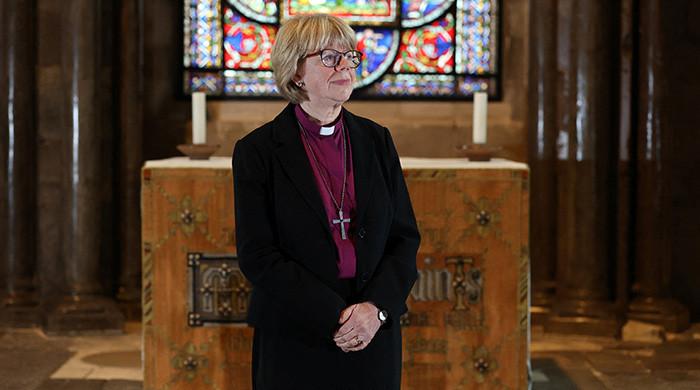
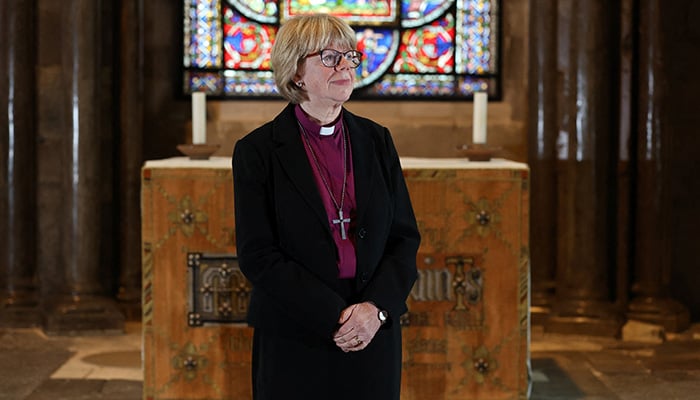
Sarah Mullally was named on Friday as the first female head of the Church of England, but her appointment as Archbishop of Canterbury immediately drew criticism from conservative Anglicans, mainly based in Africa, who oppose women bishops.
Mullally will also become the ceremonial head of 85 million Anglicans worldwide and, like her predecessors, faces a tough challenge in bridging the divide between conservatives and generally more liberal Christians in the West.
Making her first address in Canterbury Cathedral, the 63-year-old former career nurse condemned the sexual abuse scandals and safeguarding issues that have dogged the Church and also antisemitism following an attack on a synagogue in Manchester on Thursday, which killed two men.
New archbishop has supported liberal causes
GAFCON, a grouping of conservative Anglican churches globally, immediately criticised Mullally’s appointment, saying it showed that the English arm of the Church had “relinquished its authority to lead”.
Addressing those who might object to her appointment, Mullally said: “I intend to be a shepherd who enables everyone’s ministry and vocation to flourish, whatever our tradition.”
Reforms introduced 11 years ago have made it possible for a woman to become Archbishop of Canterbury, an office that dates back more than 1,400 years. It is also one of the last British institutions to have been run until now only by men.
Bishop of London since 2018, she has previously championed several liberal causes within the Church.
In her address, Mullally spoke of the difficulties of an age which “craves certainty and tribalism” and a country which is wrestling with complex moral and political questions around migration and communities feeling overlooked.
“Mindful of the horrific violence of yesterday’s attack on a synagogue in Manchester, we are witnessing hatred that rises up through fractures across our communities,” she said, adding that it was her Christian faith that gave her hope in a world which often feels “on the brink”.
Safeguarding improvements needed
The Church of England has been without a leader since last November when Justin Welby resigned over a child abuse cover-up scandal, and Mullally said she would focus on improvements in that area.
“My commitment will be to ensure that we continue to listen to survivors, care for the vulnerable, and foster a culture of safety and well-being for all,” she said.
Linda Woodhead, professor of theology and religious studies at King’s College London, said Mullally’s strong management skills were needed to help address safeguarding issues.
“Her emphasis on unity, gentleness and strength is exactly what the church, and nation, needs right now,” she said.
‘It’s all about people’
Mullally is a former cancer nurse who worked as England’s Chief Nursing Officer in the early 2000s, while also being ordained as a priest in 2002. She became one of the first women to be consecrated as a bishop in the Church of England in 2015.
“There are great commonalities between nursing and being a priest. It’s all about people, and sitting with people during the most difficult times in their lives,” she once told a magazine.
She has advocated for creating an open and transparent culture in churches which allows for difference and disagreement, and has spoken on issues including the cost-of-living crisis, healthcare, and social justice.
Mullally is married to Eamonn and has two adult children.
PM Starmer wishes her ‘every success’
Reflecting the Church of England’s status as England’s established church, Prime Minister Keir Starmer’s office announced Mullally’s appointment on Friday with the formal consent of King Charles.
“The Archbishop of Canterbury will play a key role in our national life. I wish her every success and look forward to working together,” Starmer said in a statement.
As monarch, Charles is the Supreme Governor of the Church of England, a role established in the 16th century when King Henry VIII broke from the Catholic Church.
Politics
Iran protest movement subsides after waves of unrest
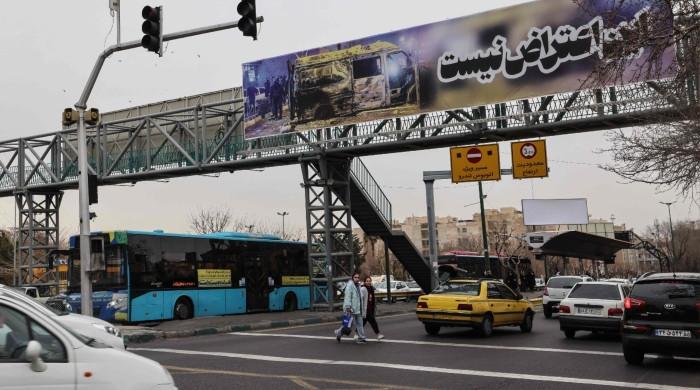
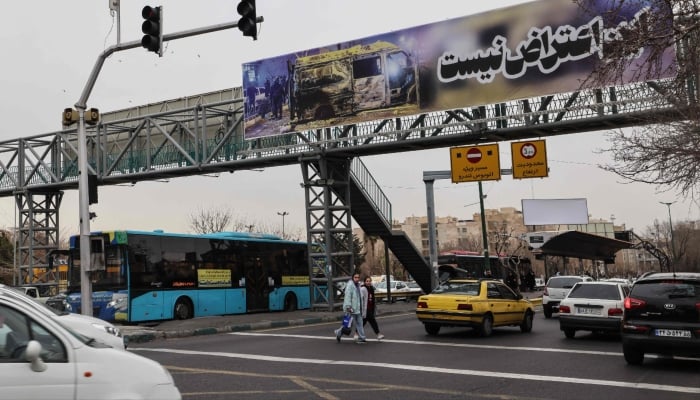
- Reza Pahlavi, son of Iran’s late shah, says govt will fall.
- Netblocks says internet blackout lasted over 180 hours.
- Tasnim reports rioters torched education office in Isfahan.
Tensions in Iran have subsided after three weeks of protests under an internet blackout, monitors said on Friday, a week after the start of the largest demonstrations in years challenging the country’s rulers.
The son of Iran’s late shah, however, said he was confident the government would fall and called for intervention, though the threat of new military action by the United States against Iran has appeared to have receded for the time being.
Protests sparked by economic grievances started with a shutdown in the Tehran bazaar on December 28 but turned into a mass movement demanding the removal of the system that has ruled Iran since the 1979 revolution.
People started pouring into the streets in big cities from January 8, but authorities immediately enforced a shutdown of the internet that has lasted over a week.
Reza Pahlavi, the son of Iran’s late shah, told a news conference in Washington that the government “will fall — not if, but when.”
“I will return to Iran,” he said.
Monitor Netblocks said that the “total internet blackout” in Iran had now lasted over 180 hours, longer than a similar measure that was imposed during the 2019 protests.
Amnesty International said this was being backed up by the use of heavily armed patrols and checkpoints to counter nationwide protests, with security forces visible in the streets.
‘Give Iran a chance’
Trump, who backed and joined Israel’s 12-day war against Iran in June, had not ruled out new military action against Tehran and made clear he was keeping a close eye on if any protesters were executed.
But a senior Saudi official told AFP on Thursday that Saudi Arabia, Qatar and Oman led “a long, frantic, diplomatic last-minute effort to convince President Trump to give Iran a chance to show good intention”.
While Washington appeared to have stepped back, the White House said on Thursday that “all options remain on the table for the president”.
Attention had focused on the fate of a single protester, Erfan Soltani, a 26-year-old who rights activists and Washington said was set to be executed as early as Wednesday.
The Iranian judiciary, however, said Soltani had not been sentenced to death, and his charges meant he did not risk capital punishment.
Rights groups have estimated that up to 20,000 people have been arrested. Security officials cited by the Tasnim news agency on Friday said around 3,000 people were arrested.
‘All Iranians united’
The US Treasury on Thursday announced new sanctions targeting Iranian officials including Ali Larijani, secretary of Iran’s Supreme Council for National Security.
Russian President Vladimir Putin, meanwhile, held telephone talks with Iranian President Masoud Pezeshkian in what the Kremlin described as “efforts to facilitate de-escalation”.
At the UN Security Council in New York, Iranian-American journalist Masih Alinejad, invited to address the body by Washington, said “all Iranians are united” against the government in Iran.
Iran’s representative at the meeting Gholamhossein Darzi accused Washington of “exploitation of peaceful protests for geopolitical purposes.”
There were, however, indications of unrest in some areas.
The state-affiliated Tasnim news outlet reported that rioters set fire to a local education office in Falavarjan County, in central Isfahan Province, on Thursday.
An elderly resident of a town in Iran’s northwestern region, where many Kurdish Iranians live and which has been the focus for many of the biggest flare-ups, said sporadic protests had continued, though not as intensely.
Describing violence earlier in the protests, she said: “I have not seen scenes like that before.”
The state-owned Press TV cited Iran’s police chief as saying calm had been restored across the country.
Tasnim news also reported what it described as the arrest of a large number of leaders of recent riots in the western province of Kermanshah, and the arrest of five people accused of vandalising a gas station and a base belonging to the Basij in the southeastern city of Kerman.
Politics
Modi-led BJP govt under fire for exiting Iran Chabahar port deal after US sanctions
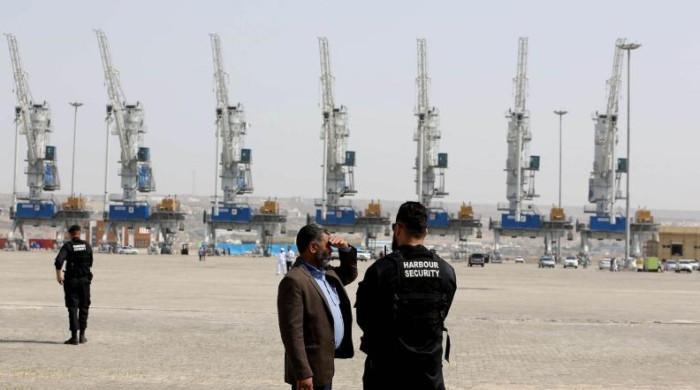
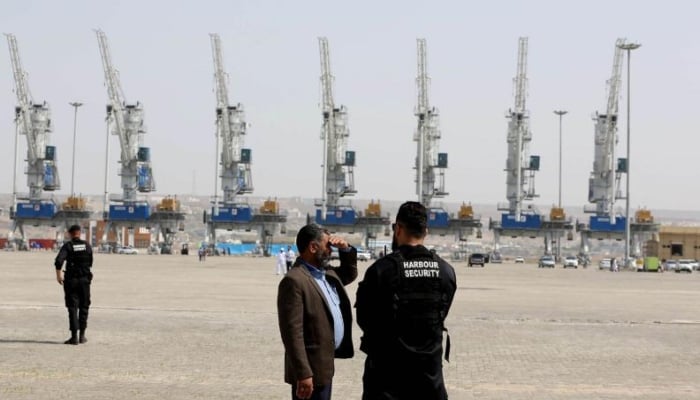
- New Delhi incurs $120m losses after exiting port development deal.
- Congress leader terms move “a new low” in India’s foreign policy.
- Experts say actions raise concerns about India’s role at Chabahar.
The Indian government, led by Prime Minister Narendra Modi, has come under heavy fire at home after it withdrew from the Chabahar port agreement with Iran, with critics arguing the move was a strategic retreat rather than a proactive foreign policy decision.
New Delhi was forced to abandon its involvement in the port after the United States imposed a 25% tariff on countries doing business with Tehran, The Economic Times reported on Thursday.
According to the publication, India’s withdrawal was carried out without any formal announcement, resulting in the loss of $120 million already paid to Iran.
The amount had been transferred before the decision to disengage and is now considered unrecoverable, the report stated.
The state-run company working at the port, India Ports Global Limited (IPGL), saw its board of directors submit collective resignations after the decision, while the company’s official website has also been shut down.
Congress party leader Pawan Khera termed the move “a new low” in the Modi-led government’s foreign policy.
“So the question is not of Chabahar Port or of Russian oil. The question is: Why is Modi allowing USA to arm-twist India?” he asked in an X post.
India assumed responsibility in 2024 for developing Chabahar port under a 10-year arrangement with Iran.
Meanwhile, a foreign journal reported that the $120 million already paid to Iran can now be used by it at its discretion for the port’s construction and development.
Observers described India’s withdrawal from Chabahar port as another major setback for New Delhi.
The Congress party sharply criticised the Modi-led government over the decision, saying the Indian prime minister “has once again surrendered to Trump”.
“$120 million of India’s taxpayers’ money was invested by the Modi government in this strategically important project, but now it’s all gone up in smoke,” read a post on the party’s X handle.
The Indian opposition party recalled Modi hailing the agreement as “a major strategic win”, saying India’s control over the port has been relinquished, with complete silence from the government.
“Unfortunately, Modi has bowed before Trump’s pressure and compromised India’s national interest,” the party stated.
Meanwhile, economic affairs experts believe the latest actions reinforced concerns surrounding India’s role at Chabahar.
They voiced concerns that India was using the port for nefarious objectives, saying that IPGL’s conduct suggested it was created primarily to acquire control of Chabahar.
Politics
Former South Korean president yoon sentenced to five years in prison
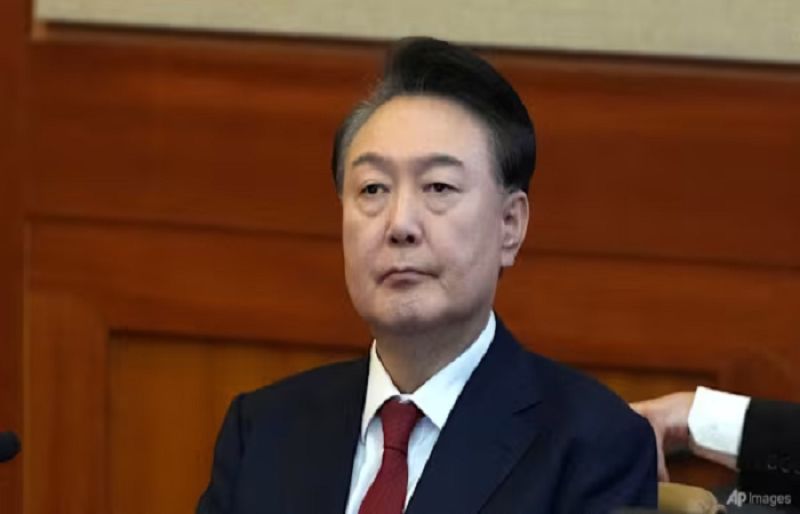

A South Korean court on Friday sentenced former President Yoon Suk Yeol to five years in prison on charges that included obstructing attempts by authorities to arrest him following his failed bid to impose martial law in December 2024.
The Seoul Central District Court found Yoon guilty of mobilising the presidential security service to block authorities from executing an arrest warrant that had been legally issued by a court to investigate him for his martial law declaration.
In televised proceedings, he was also found guilty of charges that included fabricating official documents and failing to comply with the legal process required for martial law.
The ruling is the first related to the criminal charges Yoon faces over his botched martial law declaration.
“The defendant abused his enormous influence as president to prevent the execution of legitimate warrants through officials from the Security Service, which effectively privatised officials … loyal to the Republic of Korea for personal safety and personal gain,” the lead judge on the three-justice panel said.
Speaking outside the court immediately after the decision, one of Yoon’s lawyers, Yoo Jung-hwa, said the former president would appeal the ruling. “We express regret that the decision was made in a politicised manner,” she said.
He could face the death sentence in a separate trial on a charge of masterminding an insurrection by declaring martial law without justification.
Yoon has argued it was within his powers as president to declare martial law and that the action was aimed at sounding the alarm over the obstruction of government by opposition parties.
Yoon, who also denied Friday’s charges, could have faced up to 10 years in jail over the obstruction charges related to when he barricaded himself inside his residential compound in January last year and ordered the security service to block investigators.
He was finally arrested in a second attempt involving more than 3,000 police officers. Yoon’s arrest was the first ever for a sitting president in South Korea.
Parliament, joined by some members of Yoon’s conservative party, voted within hours to overturn his surprise martial law decree and later impeached him, suspending his powers.
He was removed from office in April last year by the Constitutional Court, which ruled he violated the duties of his office.
While Yoon’s bid to impose martial law lasted only about six hours, it sent shockwaves through South Korea, which is Asia’s fourth-largest economy, a key US security ally, and long considered one of the world’s most resilient democracies.
-

 Politics1 week ago
Politics1 week agoUK says provided assistance in US-led tanker seizure
-

 Entertainment1 week ago
Entertainment1 week agoWhy did Nick Reiner’s lawyer Alan Jackson withdraw from case?
-

 Sports6 days ago
Sports6 days agoClock is ticking for Frank at Spurs, with dwindling evidence he deserves extra time
-

 Business1 week ago
Business1 week agoTrump moves to ban home purchases by institutional investors
-

 Tech4 days ago
Tech4 days agoNew Proposed Legislation Would Let Self-Driving Cars Operate in New York State
-

 Sports1 week ago
Sports1 week agoPGA of America CEO steps down after one year to take care of mother and mother-in-law
-
Sports7 days ago
Commanders go young, promote David Blough to be offensive coordinator
-

 Fashion6 days ago
Fashion6 days agoSouth India cotton yarn gains but market unease over US tariff fears






